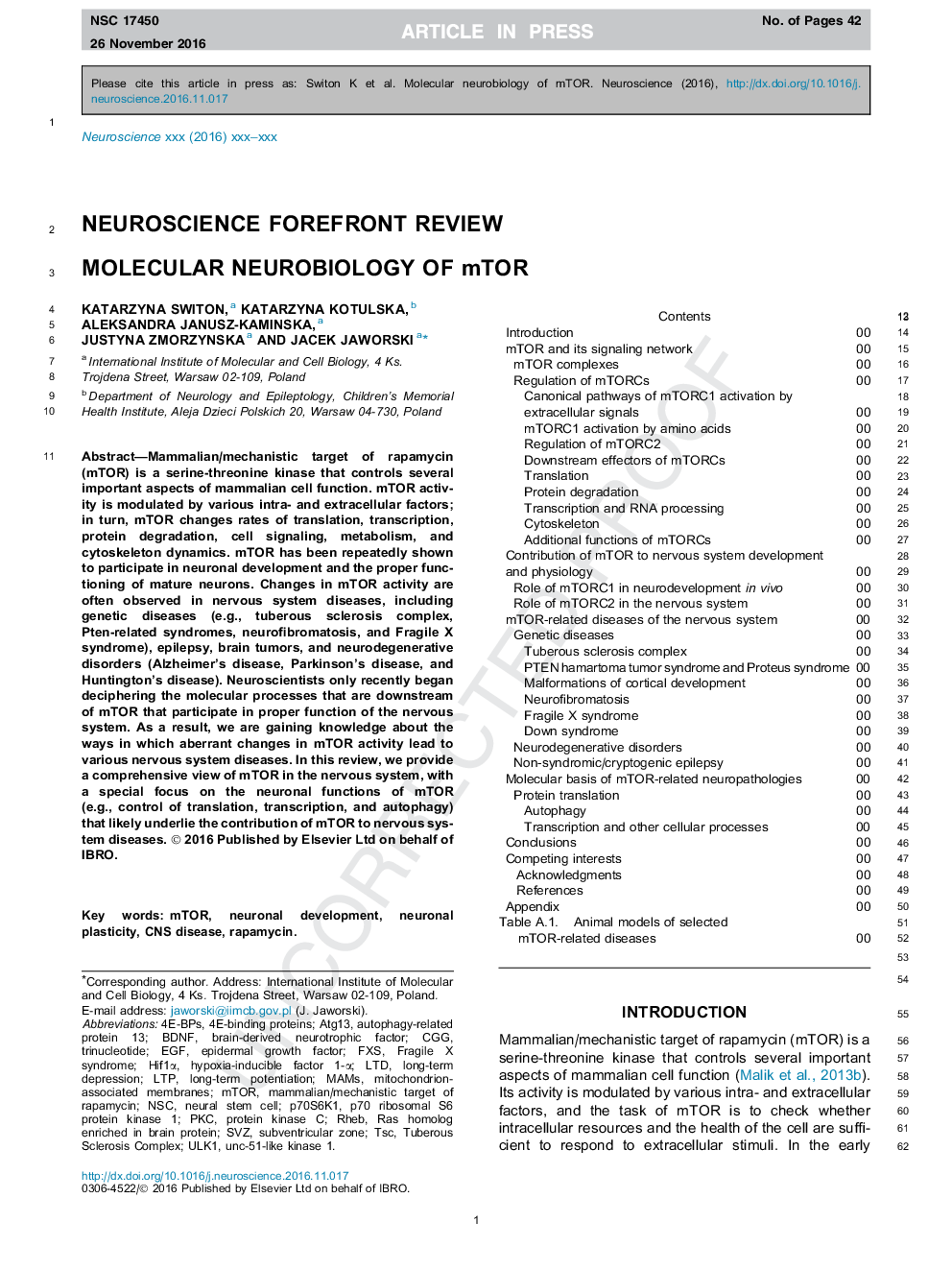| کد مقاله | کد نشریه | سال انتشار | مقاله انگلیسی | نسخه تمام متن |
|---|---|---|---|---|
| 5737506 | 1614735 | 2017 | 42 صفحه PDF | دانلود رایگان |
عنوان انگلیسی مقاله ISI
Molecular neurobiology of mTOR
دانلود مقاله + سفارش ترجمه
دانلود مقاله ISI انگلیسی
رایگان برای ایرانیان
کلمات کلیدی
unc-51-like kinase 1HIF1αULK1RHEBp70S6K1SVZFXSEGFPKC4E-BPsCGGTSCAtg13mTORNSCBDNF - BDNF یا فاکتور نورونزایی مشتقشده از مغز MAMs - MAM هاlong-term depression - افسردگی طولانی مدتCNS disease - بیماری CNSTrinucleotide - ترنوکوئوتیدlong-term potentiation - تقویت درازمدتLTP - تقویت طولانی مدت یا LTP neuronal development - توسعه عصبیRapamycin - راپامایسینNeural stem cell - سلول های بنیادی عصبیfragile X syndrome - سندرم X شکننده hypoxia-inducible factor 1-α - عامل القایی هیپوکسی 1-αepidermal growth factor - عامل رشد اپیدرمیBrain-derived neurotrophic factor - فاکتور نوروتروفی مشتق شده از مغزLTD - محدودsubventricular zone - منطقه فرعیProtein kinase C - پروتئین کیناز سیNeuronal plasticity - پلاستیک نوریTuberous sclerosis complex - کمپلکس توبروس اسکلروزیس
موضوعات مرتبط
علوم زیستی و بیوفناوری
علم عصب شناسی
علوم اعصاب (عمومی)
پیش نمایش صفحه اول مقاله

چکیده انگلیسی
Mammalian/mechanistic target of rapamycin (mTOR) is a serine-threonine kinase that controls several important aspects of mammalian cell function. mTOR activity is modulated by various intra- and extracellular factors; in turn, mTOR changes rates of translation, transcription, protein degradation, cell signaling, metabolism, and cytoskeleton dynamics. mTOR has been repeatedly shown to participate in neuronal development and the proper functioning of mature neurons. Changes in mTOR activity are often observed in nervous system diseases, including genetic diseases (e.g., tuberous sclerosis complex, Pten-related syndromes, neurofibromatosis, and Fragile X syndrome), epilepsy, brain tumors, and neurodegenerative disorders (Alzheimer's disease, Parkinson's disease, and Huntington's disease). Neuroscientists only recently began deciphering the molecular processes that are downstream of mTOR that participate in proper function of the nervous system. As a result, we are gaining knowledge about the ways in which aberrant changes in mTOR activity lead to various nervous system diseases. In this review, we provide a comprehensive view of mTOR in the nervous system, with a special focus on the neuronal functions of mTOR (e.g., control of translation, transcription, and autophagy) that likely underlie the contribution of mTOR to nervous system diseases.
ناشر
Database: Elsevier - ScienceDirect (ساینس دایرکت)
Journal: Neuroscience - Volume 341, 26 January 2017, Pages 112-153
Journal: Neuroscience - Volume 341, 26 January 2017, Pages 112-153
نویسندگان
Katarzyna Switon, Katarzyna Kotulska, Aleksandra Janusz-Kaminska, Justyna Zmorzynska, Jacek Jaworski,